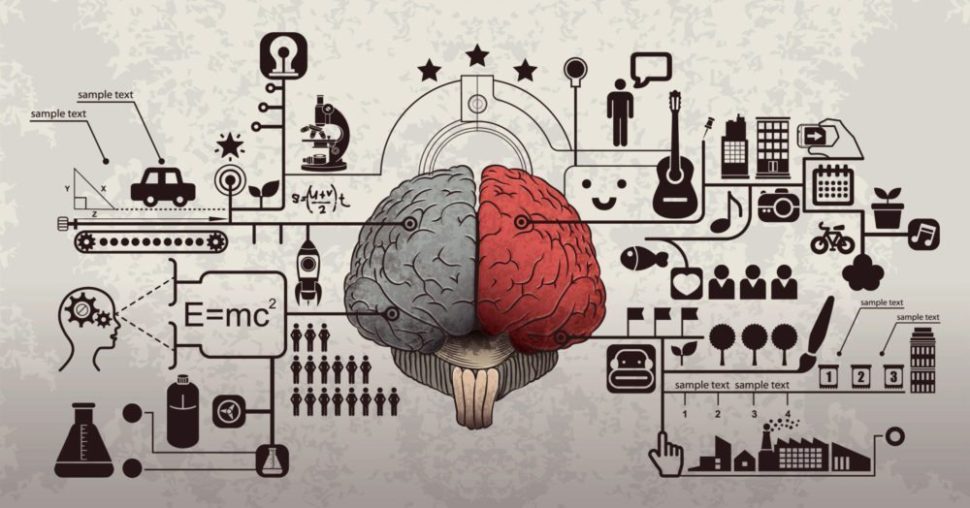Scientists have identified at least 52 genes that marginally influence intelligence in humans and believe that there are maybe thousands of other “intelligence genes” to discover.
However intelligent humans are, for ages we have debated the very definition of “intelligence”, how it arises, and how it works.
Now, we are beginning to understand that a whole host of factors (both environmental and genetic) work in concert to determine a person’s IQ; recent research attempts to pinpoint the intelligence genes or specific genetic factors that play at least a partial role in shaping this complex trait.
Other studies have identified at least 12 genes believed to be linked to intelligence, but a more recent, massive study has raised that number to a whopping 52.
40 new Intelligence Genes Uncovered
A multinational research team, led by statistical geneticist Danielle Posthuma from Vrije Universiteit Amsterdam (Netherlands) examined the biological roots of intelligence.
The team meta-analyzed data, IQ scores and genotypes from 78,308 individuals (adults and children of European descent.)
The study, published in the journal Nature Genetics, pinpoints 52 genes linked to intelligence, of which 40 are new discoveries.
Moreover, most of the genes isolated are predominantly expressed in brain tissue.
“These results are very exciting as they provide very robust associations with intelligence,” Professor Posthuma explained.
40 new Genes Linked to Intelligence Uncovered.Click To TweetShe continued with “the genes we detect are involved in the regulation of cell development, and are specifically important in synapse formation, axon guidance and neuronal differentiation”.
Is Intelligence Completely Bio-based?
While these new findings shed light on the underlying biological mechanisms of intelligence, it is important to note that the study did not discover the “intelligence genes”.
Rather, the study only reaffirmed the fact that genes play a minor role in the gestalt of human intelligence.
In fact, myriad environmental factors (like physical environment, education, health, nutrition and overall lifestyle) are also determinants.
This has huge implications for Artificial Intelligence in that its progress and evolution is not necessarily contingent on biological genes.
This means that skinjob Cylons will most likely not be prerequisite to advanced AIs, but might be a nice asthetic touch.
IQ Tests: Controversial Measuring Tool
In the present study of intelligence genes, researchers used different IQ tests to measure intelligence levels of individuals.
However, while these tests may indicate intelligence and seek to quantify it in some way, they are not necessarily universal or definitive.
The modern scientific (and pseudo-scientific) study of human intelligence and the search for intelligence genes and the genetic factors for intelligence goes back more than a century.
19th-century psychologists, like Paul Broca (1824-1880) and Francis Galton (1822-1911), explored “phrenological” factors (the size, shape or weight of the skull) to measure intelligence.
While this newest study does link intelligence to physical attributes, 19th-century Phrenology often boiled down to racially-motivated justifications for intelligence based purely on physical factors.
Therefore, the discipline sought to link genetics to intelligence by classifying IQ by race and racial factors.
Others, like Wilhelm Wundt (1932-1920) pioneered a technique called “introspection”, or a person’s ability to reflect upon their own thoughts, to determine intelligence.
Commissioned by the French government, psychologist Alfred Binet, along with his colleague Theodore Simon, was the first to come up with an IQ test in 1905 to help classify students and tell who would face difficulties in school.
The test, referred to as the Binet-Simon Scale, formed the basis of modern IQ tests that measure a wider range of characteristics (reasoning, memory, imagination, verbal and non-verbal, visual-spatial processing and other cognitive processes).
Their controversial uses (eugenics) aside, these tests remain flawed. For now, it’s best to steer clear of questionable online IQ tests, and evaluate all of the factors – environmental and genetic – that combine to produce varying levels of human intelligence.
What does this mean for AI? If intelligence is at least partially rooted in our genetics, will we be able to adequately replicated it artificially (without a bio-base)?



















Comments (0)
Most Recent